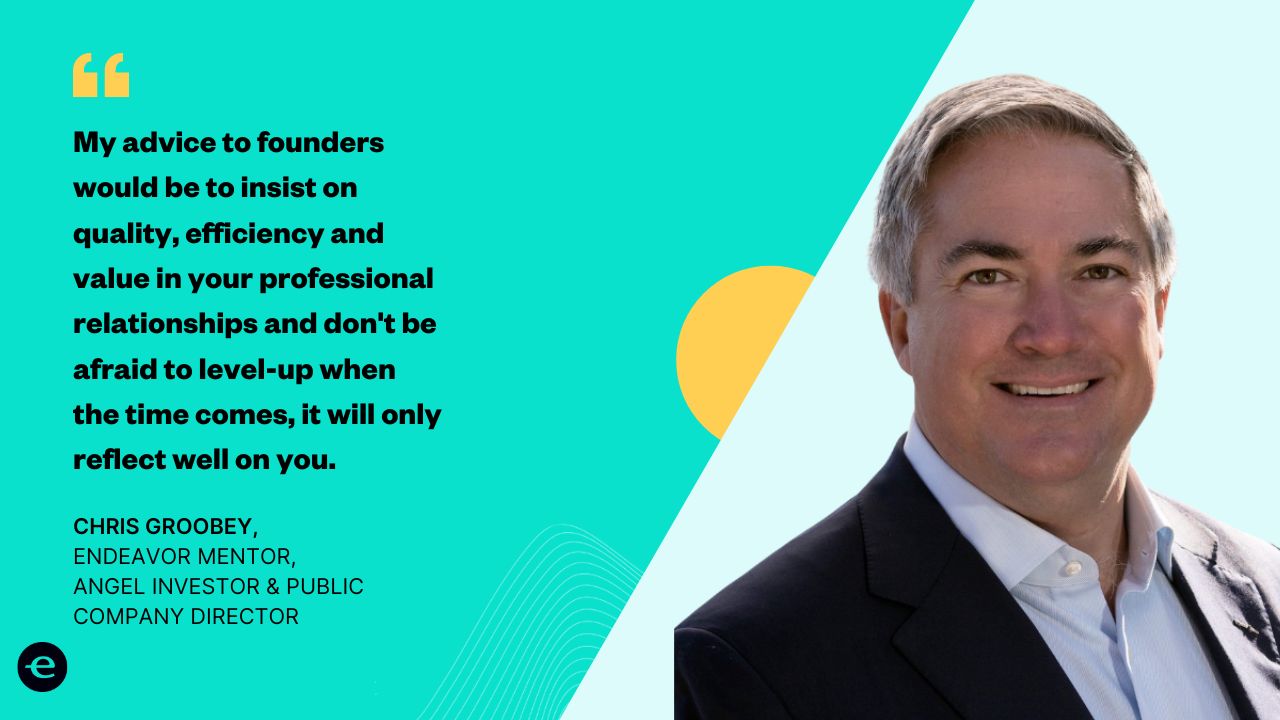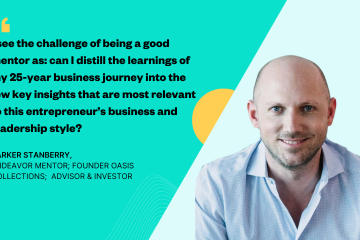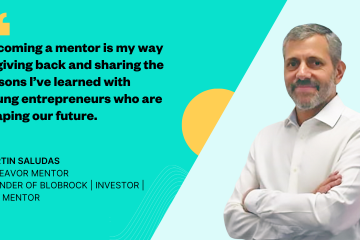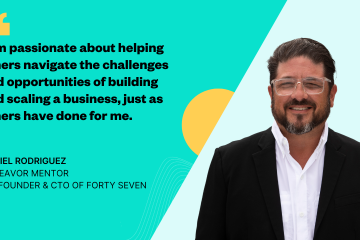Get to know our Endeavor Mentor Chris Groobey, Angel Investor & Public Company Director, in this mentor spotlight.
Why did you decide to join the Endeavor Network?
I spent 25 years practicing law, and even in semi-retirement, it is hard to escape the client-service mindset. I love using my experience, background, and network to help companies grow, solve problems, build relationships, strike deals, and avoid bad outcomes. When we moved to Miami in 2020, my wife (who is also an Endeavor mentor) and I looked around and asked, in true Miami fashion, “how can we help?” Our professional backgrounds were focused in New York and California, but as far as we are concerned, Miami is the most exciting city in the US right now. Endeavor has provided us with the opportunity to join a great community and help grow the next generation of inspiring entrepreneurs and impactful companies.
Tell us about your background and why you decided to become a mentor.
As mentioned above, I am a recovering lawyer. I say that in jest because I actually loved being a lawyer and was fortunate to be very successful at it. For the final years of my legal career, I was a partner at Wilson Sonsini, a leading technology law firm based in Silicon Valley. Wilson recruited me because of my background in renewable energy and clean technology, which was becoming a growth area in the venture community. Previously I had practiced with big New York City and global law firms serving large companies and investment banks, so Wilson and its growth-company client base was a new experience. I found that I loved helping young companies and especially acting as much as a strategic counselor as a guy who just closed deals. At Wilson, I focused on helping companies whose financing and relationship requirements went beyond what was available in the west coast venture community — these clients needed access to east coast capital, federal government support, and relationships with incumbent players. This was a new world for the companies and their investors. Still, in many cases, we made it work spectacularly well. First-gen companies like Tesla, SolarCity, and others laid the groundwork for the next generation of clean energy and climate tech leaders we see today.
As for why I decided to become a mentor, I have found in our personal investing and mentoring activities that sometimes it is nice for a young company to have access to someone with a legal background. Someone to help them think through issues, identify risks, and avoid pitfalls. And someone to guide them through how to best work with lawyers, financiers, and other professionals. I no longer practice law, so I am not trying to sell services to the companies I mentor. Still, my background as a corporate lawyer, public-company board member, and angel investor provides a useful perspective to companies at the growth stage and beyond.
What are the most important qualities and characteristics that mentors should have?
In addition to bringing a client-service mentality to the work, I would say honesty about what you know and don’t know, clarity in the advice you are giving, providing the long-view perspective to every short-term action and achieving a healthy balance between encouragement and skepticism in the mentor-mentee relationship.
Any general advice for entrepreneurs?
Given my background, I will share the following: it is amazing to me what an awful job some lawyers do for their clients, especially in the start-up community. Early-stage founders and companies can survive this for a while but at some point the professionalism and quality of outside advisors becomes important to how investors, customers and partners perceive growing companies. Insist on quality, efficiency and value in your professional relationships and don’t be afraid to level-up when the time comes, it will only reflect well on you.
What are you reading?
I just finished 2034, which is a novel co-authored by Admiral James Stavridis about a potential future war between the US and China. We are very close to a number of young people serving in the military and they pass along books, like this one, that are making the rounds among them and their superiors. Otherwise I am a rabid racing sailor and read everything I can about naval history, seafaring adventurers and top-level competition like the Olympics and Americas Cup.
These responses have only been edited for grammar.



